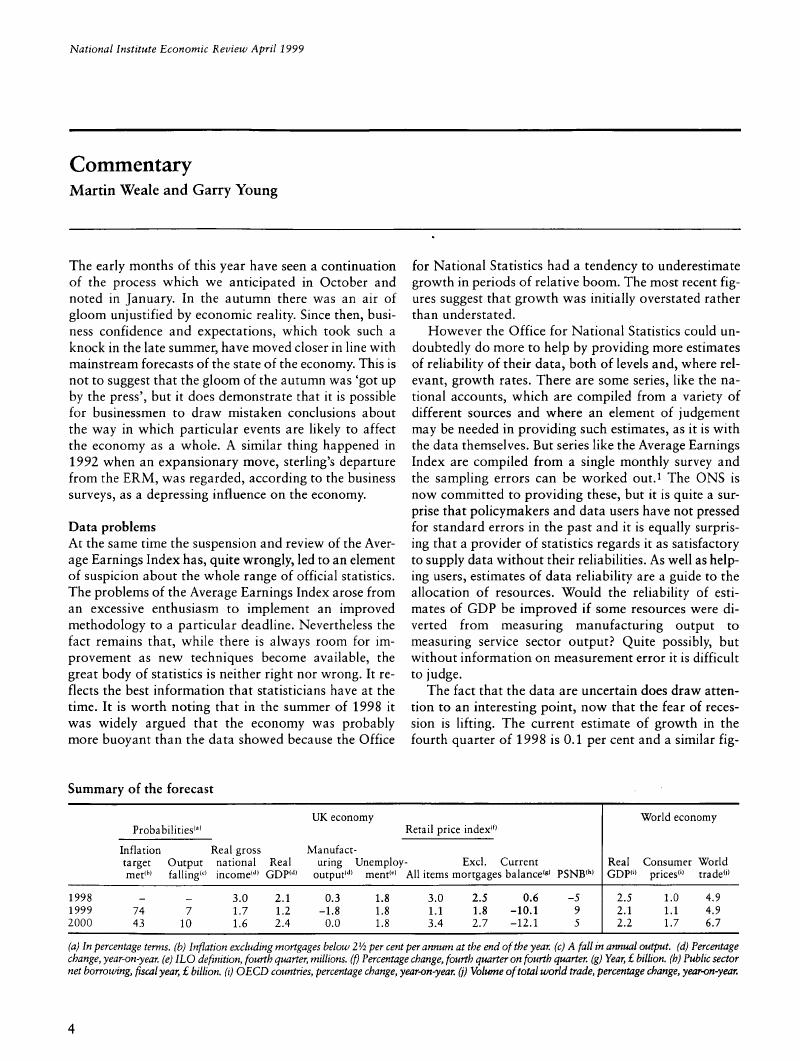No CrossRef data available.
Published online by Cambridge University Press: 26 March 2020

1. Had this been done in the Average Earnings Index, the ONS would have been able to identify some of the main problems which arose with the index that was released in October.
2. As suggested by Mr G. Davies, Minutes of Evidence to the Treasury Select Committee, 16 March 1999, p. 20.
3. The alternative would be that a lower expected entry value of sterling would make room for higher interest rates now, supporting sterling at closer to its current level. But this is not desirable; it would revive concerns about the two-speed economy.
4. Cardarelli, R., Sefton, J. and L. Kotlikoff, L. (1998), ‘Generational accounts for the United Kingdom’, Presented to NIESR Conference on Reforming the Welfare State, London, December.